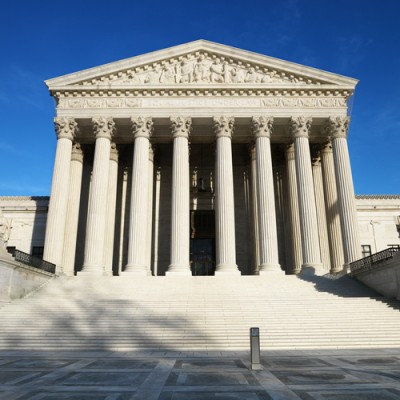Supreme Court rules patent holders may not bar otherwise timely lawsuits with laches

The U.S. Supreme Court ruled today that patent holders may not use the doctrine of laches—that is, may not argue that defendants slept too long on their rights—as a defense to lawsuits filed within the Patent Act’s six-year statute of limitations.
The 7-1 decision (PDF) extended a similar decision on copyrights in Petrella v. Metro-Goldwyn-Mayer to patent law. It also reverses a decision of the en banc U.S. Court of Appeals for the Federal Circuit, which approved the use of laches based on precedent in 2016.
The high court said permitting defendants to invoke laches would undermine the statement Congress made by including an express six-year statute of limitations in the Patent Act. In fact, it said, “it would be exceedingly unusual, if not unprecedented,” if Congress had chosen to include both a statute of limitations and laches as an equitable defense.
“Although the relevant statutory provisions in Petrella and this case are worded differently, Petrella’s reasoning easily fits the provision at issue here,” Justice Samuel Alito wrote for the majority. “By the logic of Petrella, we infer that this provision represents a judgment by Congress that a patentee may recover damages for any infringement committed within six years of the filing of the claim.”
SCA Hygiene and First Quality both make adult diapers. In 2003, SCA informed First Quality that its products infringed on SCA’s patent. First Quality replied that its patent was issued before SCA’s, making SCA’s invalid. SCA in 2004 asked the Patent and Trademark Office to re-examine its patent. The PTO affirmed SCA’s patent’s validity in 2007, and SCA sued First Quality in 2010.
The district court granted summary judgment to First Quality on the grounds of both laches and equitable estoppel. But while the case was on appeal, the Supreme Court decided Petrella, permitting the daughter of the screenwriter for the movie Raging Bull to sue film company Metro-Goldwyn-Mayer for copyright infringement. The case said laches doesn’t apply to copyright cases because copyright law already contains an express statute of limitations. The opinion expressly said it wasn’t deciding whether the same would be true in patent law, noting that the issue had not been before the court.
The patent issue arrived before the court just a few years later, after a three-judge panel and then an en banc panel of the Federal Circuit applied its own precedent to SCA. That ruling became one of several recent cases in which the Supreme Court has overruled the Federal Circuit.
The change is likely to be important to patent litigators, who may find their clients eager to pursue lawsuits that might otherwise have been barred—or liable for more infringement than they expected. Patent lawyer Mark Privratsky of Lindquist & Vennum in Minneapolis told the ABA Journal in 2015 that the decision making laches unavailable could be “tipping the apple cart upside down.”



